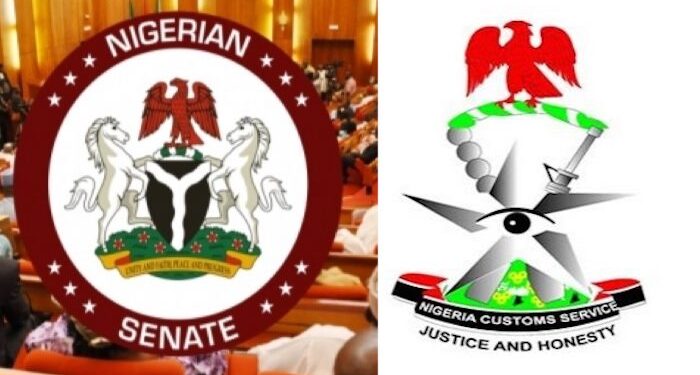The Senate made it clear on Monday that the Nigeria Customs Service (NCS) will see its 2024 revenue target of N5.079 trillion reviewed upward in the latter part of the year. This adjustment aims to mitigate further borrowing by the country.
Isah Jibrin, Chairman of the Senate Committee on Customs, conveyed this during a meeting with the Comptroller General of the NCS, Adewale Adeniyi, and other top officials. Jibrin stressed the crucial role of customs in generating internal revenue, which is essential for alleviating the nation’s debt burden. He emphasized the need to settle existing debts and reduce reliance on additional loans.
Jibrin explained that certain sectors, particularly agriculture, have been granted concessions to stimulate economic activities. These concessions are intended to encourage investment in sectors with direct positive impacts on the economy. He clarified that these concessions were not indicative of any impropriety but rather were strategic measures to foster economic growth.
Regarding employment, Jibrin acknowledged the high unemployment rate in Nigeria and expressed the Senate’s expectation for the Customs Service to increase its workforce beyond the current benchmark of 1,600 employees. While recognizing the limitations of Customs in absorbing all unemployed individuals, Jibrin underscored the need for them to hire as many as possible.
Adeniyi, the CG of NCS, informed the lawmakers about the Service’s proposal to grant waivers to owners of smuggled vehicles, allowing them to regularize their Customs duties within three months. He highlighted the importance of publicizing this opportunity to ensure compliance and facilitate the regularization process.
Adeniyi also voiced concern about the volatility in the exchange rate, emphasizing the challenges it poses for planning and execution. He called for collaboration between monetary and fiscal authorities to establish a stable and predictable exchange rate regime.
Overall, the discussions underscored the importance of customs revenue in addressing Nigeria’s fiscal challenges and the need for effective policies to enhance revenue generation while promoting economic growth and stability.


